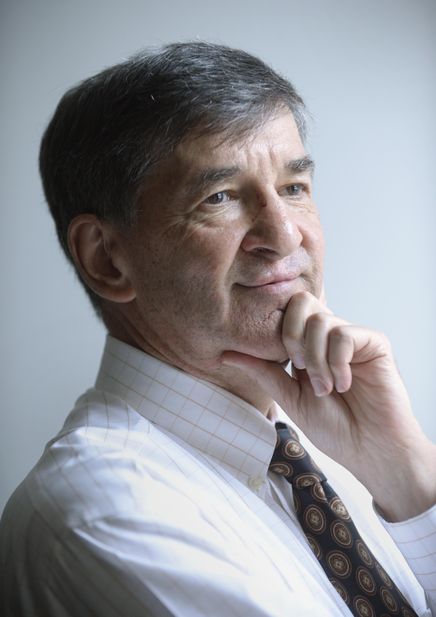A University of Missouri grad’s take on campus tumult.
The resignations this week of two leaders of the University of Missouri has drawn considerable attention across the country. An incident involving student journalists who were trying to cover a related public gathering on campus has attracted particular comment and concern among journalists. I'm turning over this blog space today to Spokesman-Review reporter Kip Hill, a 2013 Missouri graduate with a master of arts degree in journalism. Here's his view:
I consider myself privileged to have attended the University of Missouri’s School of Journalism. The professors, staff, students and community members I met there shaped who I am as a writer, a journalist and a person.
That is why I watched with dismay the display Monday following the announced resignation of Tim Wolfe, president of the university system, and R. Bowen Loftin, chancellor of the university.
Like many alumni, I grew apart from the school and city I called home for several years. I read social media posts on the growing discord on campus, and the occasional article from the Columbia Missourian, the newspaper where I cut my teeth, on the tumult. I knew the announcement Monday was momentous – a signal that students, often a powerless voice on campus, had achieved real change at a school where racial discord continues to be present, just a short drive down Interstate 70 from where Michael Brown was shot and killed by a white police officer.
This should have been an opportunity for students of a school that claims to do journalism among the best to tell the kinds of stories most reporters search their whole lives to find. Stories about addressing racial disparities, about the perceived unfairness of society and the ability of a class of individuals to set aside their personal pursuits and pursue a goal they think will benefit more people than just themselves.
Instead, the narrative was subsumed by several protestors who chose to actively combat journalists’ attempts to tell that story.
In the wake of Professor Melissa Click (who, by the way, is not an instructor of Mizzou’s Journalism School but rather in the College of Communication) clearly requesting “muscle” to physically remove a filming reporter from an area where protestors were mingling, I’ve seen a huge outcry from journalists, but also some reasonable defenses of Click’s behavior and the desire by student activists to “control the message.”
The best example of this was Terrell J. Starr, who said he’s working on a column for the Washington Post today and brought up the very justified argument that the media is dominated by people who look, think and act like me, as a white man, and that media has left a legacy that engenders mistrust.
Journalism in America has long been a function of white supremacy and black people are right to look at reporters with suspicion.
— Terrell J. Starr (@Russian_Starr) November 10, 2015
Starr’s main point, to me, seems to be that reporters were refused access, so they should have respected the “safe space” that had been set up on campus. That the quadrangle at Mizzou is a public space is irrelevant, he says, because the protestors were private citizens, not public officials, and there was nothing to be gained by journalists “forcing themselves” (his words, not mine) on those protestors immediately following the decision.
What I saw in the video that came out of Monday’s events did not appear to me to cross the line of a professional storyteller going after a story. And let’s not forget that the goal of this protest, in the first place, was to force an establishment to consider the narrative of minority students that had been lost or neglected. Much of the run-up to Monday’s events focused on the inability of Wolfe even to consider or engage with a student population that faced racially inspired attacks in an institution of higher learning, a place where such attacks should never, ever take place.
Monday’s resignation should have been an observation that the establishment had taken heed, and was ready to engage in that conversation. One of the places that conversation has always, and will always, take place is in the media. Yes, this conversation has to be built on trust, and yes, that trust has been winnowed by years of biased coverage and misunderstanding.
The way to bridge that trust is not to shut off all communication once the victory has been achieved. I’m heartened by images coming out of Columbia this morning, showing that members of the Concerned Student 1950 (named for the year black students were first admitted to the University of Missouri) are willing to welcome and share their stories with media following yesterday’s events.
The journalists who are invited in to share the stories of those who have struggled should adhere to the basic ethics of the profession that we are expected to uphold every time we tell the stories of others. Generally, our creed is just like that of doctors – to do no harm to those who are afflicted, but to share their experiences and perspectives with an audience that, much like ourselves, may and will likely struggle to understand the worldview of another.
I have faith the good folks in Columbia can do that. How, you might ask? The same people teaching them to do so taught me.
